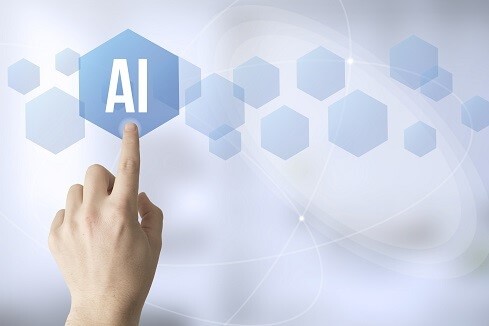A month or so ago, I led a discussion with a group of about a dozen technology executives. They are board members for different organizations. The discussion topic centered around how they should advise their company boards on artificial intelligence adoption strategy.
One participant in particular was fixated on preparing his board for artificial general intelligence (AGI). AGI is the point where artificial intelligence hits parity with human intelligence. I tried to steer him away from this focus. But, he was convinced that this was his mission. This is one of the challenges with artificial intelligence.
So, what is the difference between artificial intelligence and machine intelligence? In the vast majority of literature, they are pretty much used interchangeably. I believe the casual reader would consider them synonyms. However, I also believe the two terms are fundamentally different and each embodies a different mindset. And I see this difference reflected in adoption practices.
Artificial intelligence is more prevalent than machine intelligence. But actually, machine intelligence is an older term than artificial intelligence. John McCarthy, a professor at Stanford, is credited with coining the term artificial intelligence. He presented the term at the now famous 1956 AI workshop at Dartmouth. The term “machine intelligence” was first introduced by Alan Turing himself during lectures in 1947. He wrote a report in 1948 entitled, “Intelligent Machinery.” so, both terms have an impressive and storied history.
So let’s get right to what I think is the fundamental difference.
Artificial Intelligence is a Comparison with Human Intelligence
Artificial intelligence, at its core, compares intelligent computing to human intelligence. After all, we are not talking about artificial “dog” intelligence or artificial “cow” intelligence. It positions intelligent computing as artificial “human“ intelligence. The human is implied and the comparison is direct. Do a quick google search starting with “Can AI.” The autofill returns the below.
The hype is sometimes subtle making it even more misleading. An ieee article I read recently stated, “Everyone agrees that current AI techniques such as deep learning still fall short of enabling a general AI that has intelligence comparable to animals or humans.” The terminology “still falls short” implies that it is somewhat close. This is like saying that Southwest Airlines still falls short of interstellar travel. And yet, these kinds of comparisons are commonplace. At least ieee.com gives a shout out to artificial goat intelligence.
I have seen many artificial intelligence models that directly measure machine intelligence against the strengths of human intelligence. Invariably, this is a one-sided view where machines, not surprisingly, come up short. Apparently, it is a really big deal for computers to achieve “common sense.” Contemplate that as a bar of achievement. How much of human greatness can we chalk up to common sense?
Machine Intelligence Centers on the Capabilities of Machines
Alternatively, the machine intelligence term embodies a more pure view of what machines can achieve without the bias of a comparison to humans (or dogs, cows and goats for that matter). This is important. It promotes a focus on the strengths of machine intelligence and not its comparative weaknesses.
- 720p resolution View your favorite movies, shows...
- Alexa voice control - The Alexa Voice Remote lets...
- Fire TV experience built-in - Watch over 1 Million...
- Supports Apple AirPlay - Share videos, photos,...
- Supports HDMI ARC - Sends audio directly from the...
- 1080p High-Definition - Watch TV in crisp, clear...
- Full Array LED Backlight - Evenly distributed LEDs...
- IQ Picture Processor - Delivers superior picture...
- V-Gaming Engine Automatically optimizes picture...
- SmartCast - With intuitive navigation, enjoy...
Last update on 2024-04-05 / Affiliate links / Images from Amazon Product Advertising API
What if we flipped the artificial intelligence model? What if we directly compared human intelligence to the strengths of machine intelligence. Human intelligence would not fare well. Machine intelligence performance far exceeds human intelligence in areas such as speed, scale, consistency and endurance.
For example, computer vision algorithms are now scanning x-rays to detect numerous pathologies. Algorithm accuracy is reaching parity with radiologist accuracy for a number of pathologies. Except the algorithm is much faster and can work 24-7 processing thousands of x-rays in a day. If you were to place those workloads on a human radiologist then we would see a tremendous accuracy advantage for the machine.
Which is better?
Better is a relative term. The term artificial intelligence might be better for data scientists in a lab. Some are using human intelligence as a bar to which they strive.
Analysis and experiments on when and how machines will achieve artificial general intelligence may help them invent and tune algorithms. However, business leaders should not get sidetracked by artificial “human“ intelligence.
I certainly favor machine intelligence over artificial intelligence for business adoption because It doesn’t carry the baggage of machines needing to outperform human intelligence in the areas where human intelligence excels. Business leaders shouldn’t wait for human parity before exploring the incredible potential of machine intelligence. The term also doesn’t position machine intelligence as a competing alternative to human intelligence.
- SAMSUNG USA AUTHORIZED - Includes 2 Year Extended...
- Samsung 85 Inch DU8000 Crystal UHD LED 4K Smart TV...
- UHD Dimming | Auto Game Mode (ALLM) | Alexa...
- SAMSUNG TIZEN OS: Stream your favorite shows, play...
- BUNDLE INCLUDES: Samsung DU8000 Series 4K HDR...
- SAMSUNG USA AUTHORIZED - Includes 2 Year Extended...
- Samsung 75 Inch DU8000 Crystal UHD LED 4K Smart TV...
- UHD Dimming | Auto Game Mode (ALLM) | Alexa...
- SAMSUNG TIZEN OS: Stream your favorite shows, play...
- BUNDLE INCLUDES: Samsung DU8000 Series 4K HDR...
Last update on 2024-04-05 / Affiliate links / Images from Amazon Product Advertising API
In my opinion, it is far more productive to combine the two. The bottom line is that business leaders should focus on the strengths of machine intelligence and figure out how to combine those strengths with the capabilities of their people to build a better organization.
I’m not at all expecting the machine intelligence term to supplant artificial intelligence. I would just like to see machine intelligence appreciated for what it can do rather than being measured against the wondrous human brain.
Artificial Intelligence vs. Machine Intelligence – Which is Better?






